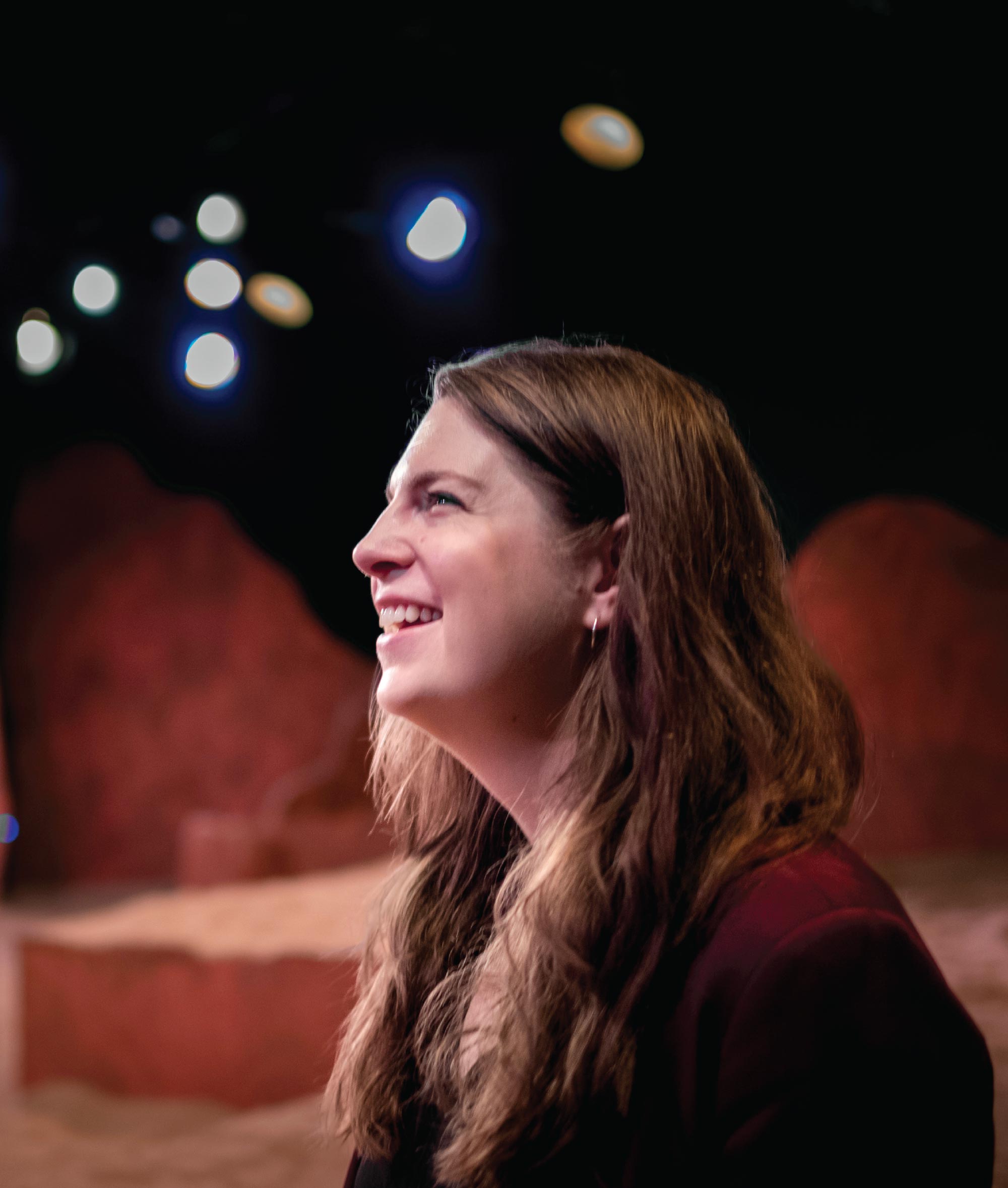An
Invitation
to
Art-Making
s artistic director for Theatre Horizon, an 18-year-old theater in the Philadelphia suburb of Norristown, Nell Bang-Jensen ’11 thinks a lot about how artists can collaborate with people who are not in the arts.
“Part of what attracted me to the position is Norristown is a fascinating place,” says Bang-Jensen, who also believes arts organizations can function as civic spaces for a community. Historically a manufacturing town, Norristown is the county seat of Montgomery County, the second-wealthiest county in the Commonwealth.
But it’s more economically and racially diverse than the county at large, with a median household income of around $55,000 a year.
“It’s a really interesting space to ask the relevance of arts organizations and how we might make the theater a space of belonging,” she says. Bang-Jensen has served as Theatre Horizon’s artistic director since September 2019.
“My biggest directive is to decide on programming, overseeing our artistic productions, overseeing fundraising, overseeing our education programs,” she says.
The theater aims to put on about three major plays or musicals per year, plus another three “limited engagement events,” such as concerts or plays presented by other theater companies.
It also reaches more than 1,000 students annually, including a long-running drama program for children and adults on the autism spectrum. The unique offering was profiled on The Kelly Clarkson Show.
“It was started for one kid whose parents had just gotten an autism diagnosis for their son and they read an article about how theater games can help social and emotional learning,” Bang-Jensen says. “They were friends with someone who worked here at the time and she said, ‘Let’s make a program.’ We started with one and now have more than 60 kids and adults in the program. We added a virtual option in the pandemic and have seven states represented and Canada.”
Classes are offered on a sliding scale fee. Bang-Jensen, who also is a lecturer at the University of the Arts, says teaching students on the autism spectrum is a great reminder for her as an educator to meet people where they are.
“I think those students are willing to be more upfront about their needs,” she says. “All of us have needs all the time; we just predominantly keep them hidden. But there’s something I find refreshing about being in a space where people are upfront about what they need and what they feel, and it’s our job to meet them where they are in a challenging and really thrilling way.

Bang-Jensen, who majored in English literature and theater, fell in love with the Philadelphia theater scene while at Swarthmore. And — minus a one-year globe-trotting stint as a Watson Scholar — she has been making theater in and around the city ever since.
She has created four full-scale original works, including The Caregivers, which premiered at Pig Iron Theatre Company in 2018 and was developed in collaboration with people in home health care and hospice jobs in Philadelphia.
The forthcoming Boy Project, produced by FringeArts, is based on interviews with teenagers who identify as male or nonbinary about their generation’s ideas of masculinity.
“That one got a little lost in the pandemic, but we’re having talks about finishing it,” Bang-Jensen says, adding that the adolescents who were originally interviewed at age 14 are now at or near college-aged. “I’m really curious how their opinions have changed as they’ve gotten older and survived high school.”
With Theatere Horizon, Bang-Jensen also developed Town, a story of Norristown based on interviews with more than 130 residents and featuring a cast made up of both professional actors and community members, including six students from the autism drama program.
Bang-Jensen is passionate about making theater with and for her community.
“I think so often arts organizations are putting out offerings that they think, in their bubble, are worthwhile and the relationships they have with their communities can be really transactional. Even if they are giving a ticket for free, it’s still a transaction.
“I always joke, it’s ‘eat your spinach’ theater, where actually we need to begin the conversation much earlier, inviting people into the art-making itself rather than just being spectators,” she says. “I think most of us fall in love with the arts if we do because we’ve had the opportunity to participate in them in some way. That’s why education programs are so important.”